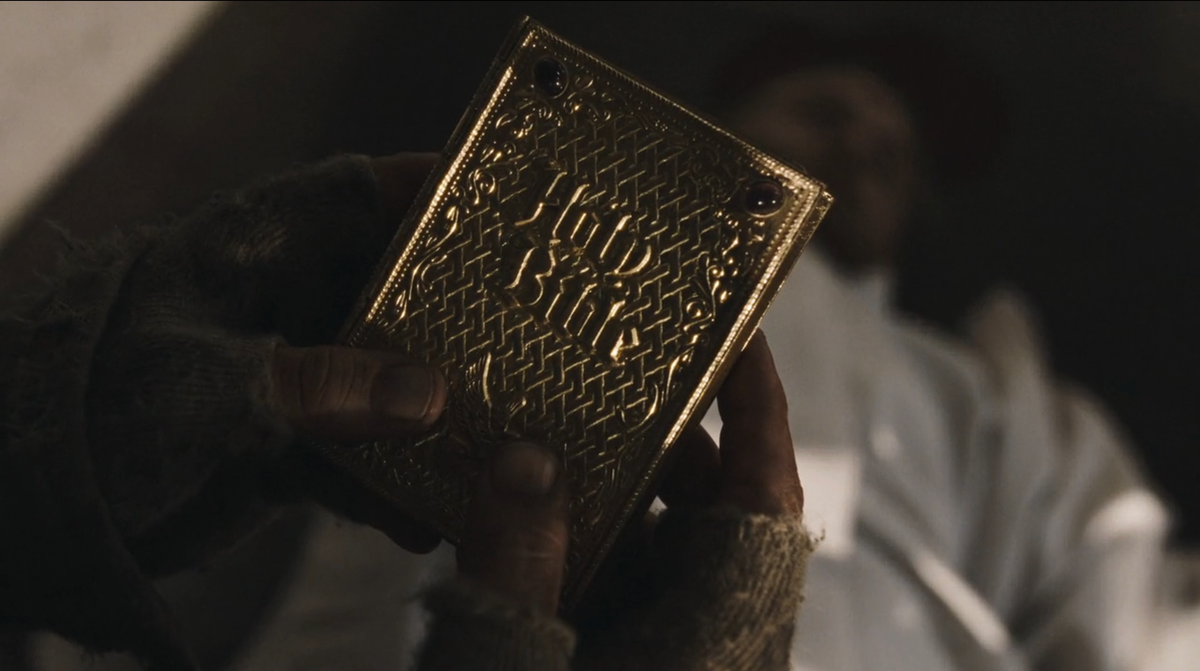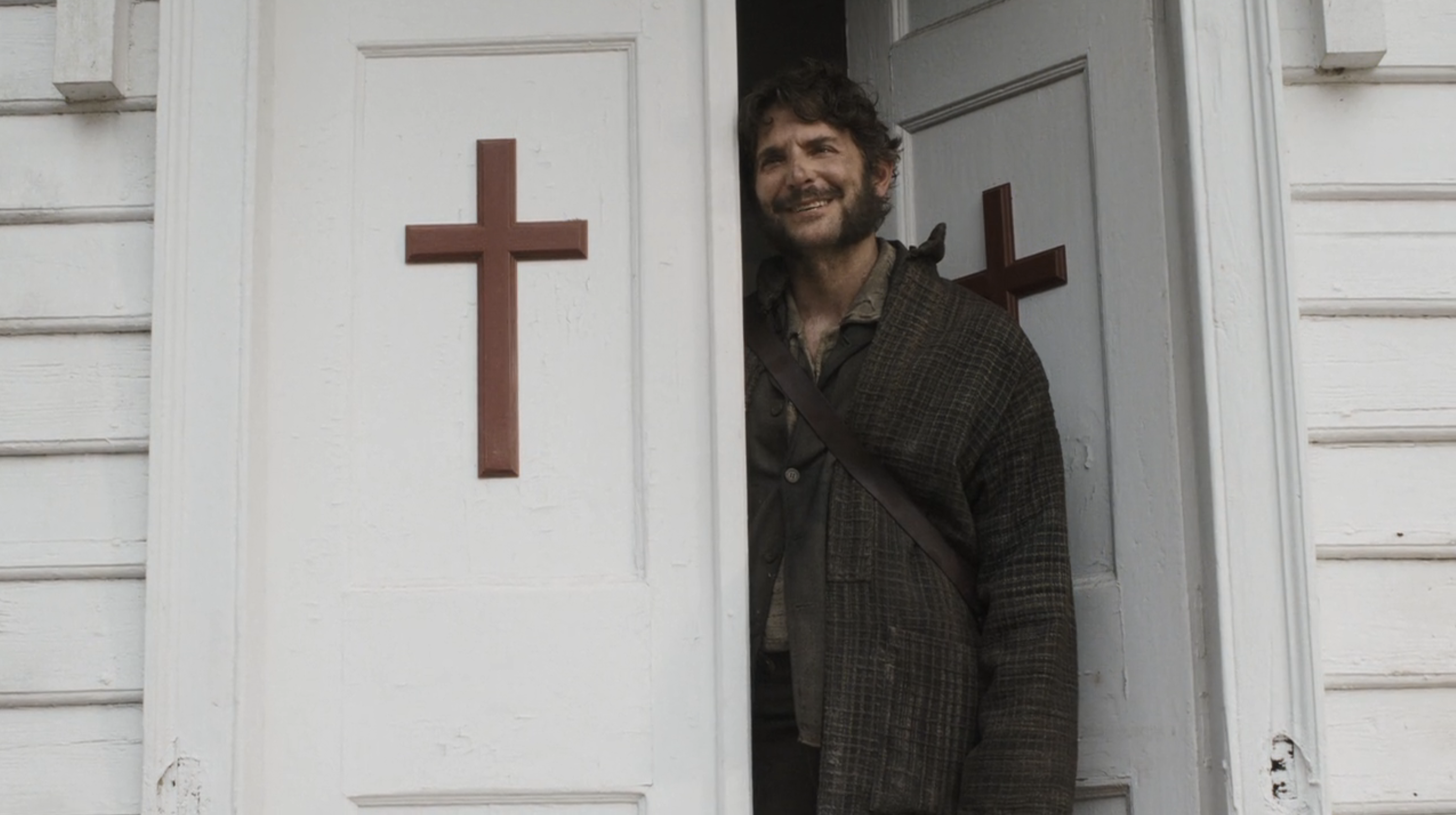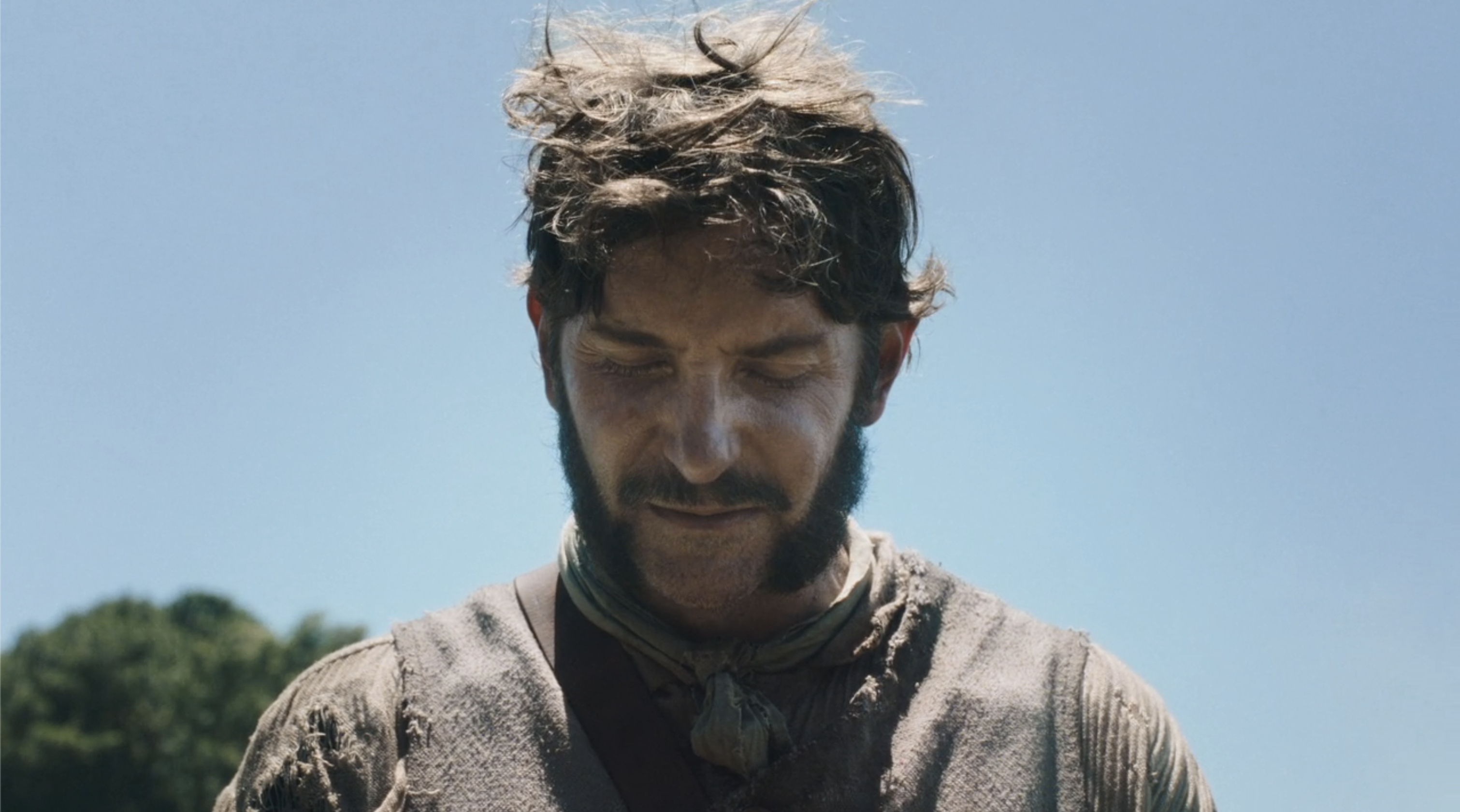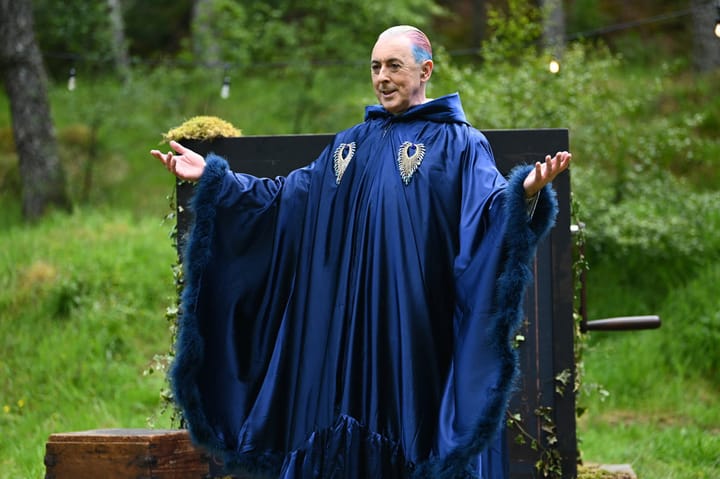Review: The Righteous Gemstones, "Prelude" | Season 4, Episode 1
In the beginning, God said "Let there be Elijah Gemstone," and he was very handsome. Blessed be the name of the Lord!

Welcome back to our coverage of HBO’s The Righteous Gemstones, which kicks off its fourth and final season tonight on HBO. As always, this first review is free for all, but paid subscribers can follow along with all of Donna’s reviews in the weeks ahead. Yearly subscriptions are 15% off until 3/15.
Years ago I read an article about the music business. (In my recollection, this article was in the New Yorker, to which we subscribed, and it was called “The A&R Man” or some such; but despite much searching over the years, I’ve never been able to locate it.) One line has stuck with me, a quote from the subject of the article about why, in an age of readily-available consumer-level tools, the hulking monster of the music industry is still worthwhile. “Anybody can make an album,” this guy said, “but only a major label can make a really expensive album.”
After watching this episode with me, Noel Murray brought this quotation back to my mind. Isn’t it nice, he said (in so many words), that this show is on HBO, which has the fuck-off money to let them do this? Anybody can make a TV show, as marginal streaming services, niche cable channels and YouTube content creators prove every day. But only a prestige network can make a TV show where the final season premiere is a historical flashback with zero recurring characters and one Bradley Cooper.

“Prelude” plays with our knowledge of the Gemstones and American history from the first moment. The episode opens in a Virginia church in 1862, where a white-robed preacher (Josh McDermitt) expounds how states’ rights is (providentially but counter-intuitively) the very love of Jesus Christ. Politically expedient message, check; greedy counting of the offering, check. We’re in Gemstones territory. But then a cold-blooded killer guns the preacher down and takes the money for himself; sure, violence is part of the language of this show, but we’re as yet unsure what part of the backstory we’re getting. It’s only when the killer decides on the spot to impersonate the reverend, who’s being conscripted as chaplain to the Confederate army marching to Fredricksburg, that we learn the answer via a note he scribbles and leaves with the preacher’s body. “This is the body of the crook who tried to rob me. His name is Elijah Gemstone and he is dead now. He was very handsome.” No lie detected in the last part, for sure. Cue the titles and the angelic choir; it’s time to witness the origin of the Gemstones’ family legacy of ministry—a crook pretending to be a man of God.
If you didn’t cop to the fact that it was Cooper under that grime in the cold open, you might have expected to jump to the present day after the titles. (If you did recognize Cooper from that distinctive profile and those baby blues, you probably realized he wouldn’t just be in the episode for one scene.) But no—we stay in the past, and follow Elijah (operating under the name of the preacher he killed, Abel Grieves) to the Battle of Fredricksburg. By day he sidesteps as much chaplaining as possible. By night he drinks and plays cards with the soldiers, taking their worthless Confederate money. But sometimes he can’t avoid sitting with a dying man who asks for his prayers. And then “Rev. Grieves” has to fake his way through it.
This episode doesn’t have the enormous setpieces that are The Righteous Gemstones’ calling card. What it does have is Bradley Cooper doing Danny McBride dialogue in a Danny McBride style, which is, first of all, hilarious. The style has two main parts: the improvisatory, making-it-up-as-you-goes-along bluster, and the mumbling asides to yourself. Cooper nails them both. It always adds an extra layer of delight when someone with a known style of their own adopts the established style of an ongoing series—the joy of seeing range and talent, the chameleon-like qualities of a great actor.
But secondly, watching Cooper work in this style highlights what’s special about the style itself. It’s like hearing a great musician do a great cover of a great song—you can suddenly discern the brilliance inherent in the song itself, that you might have attributed to the original performance instead of the strong underlying material. Cooper rings the changes sublimely. “I see the love of Christ in you,” he says to a dying kid, as if suddenly struck with inspiration on how to play his part. Then, impatient to be done with the uncomfortable encounter, he adds: “Go! Go be with him. Why don’t you be his child in your death passing?” Tapped out, he trails off: “Okay! Well, that’s it, I guess.” When the kid asks his chaplain to pray with him right then, “Grieves” still hopes to avoid any ministering, fake or otherwise: “Uh, I did already. It’s done. I been praying this whole time, silently, in my mind.” The kid insists, and the put-upon fake reverend all but rolls his eyes—“gimme a second, it’s coming”—with an ironic Jesus Christ under his breath. It’s the whole Jesse Gemstone experience, and it truly helps us appreciate what a monumental comic performance McBride delivers as its model.
Elijah is cold-blooded enough to fleece the soldiers every night, conspire with a blackmailer (who recognizes him from a previous hustle) to take a visiting major to the cleaners, garotte the blackmailer, and dump him in a coffin already occupied by a casualty of war. (When he’s told the next day that the blackmailer seems to have deserted, he smugly observes that “not all soldiers have courage” just before cowering behind a wagon wheel and begging God to save him) But he’s unnerved enough by the senseless maiming and killing of kids barely past puberty to offer some semblance of comfort. When a dying soldier fears he won’t go to heaven because, well, he killed people, “Grieves” jumps in quickly: “I heard they changed that. … He knows what a pickle this war is, and He’s letting things go.” Maybe it doesn’t change the soldier’s fate—still dumped in a coffin branded with a cross—but it’s the last thing he hears, and Elijah delivers the lie with unexpected conviction. Even a lie from a fake man of God can be a kindness.
Ultimately, Union troops capture Elijah and other members of his company after an ambush. A search reveals the gold-plated Bible Elijah took off of the real Abel Grieves, and the commander of the Union squad proclaims that as a man of the cloth, the chaplain will be released—after his fellow prisoners are executed by firing squad. “Would you like to have final consultations with your Confederates, minister?” the commander asks, and Elijah, eager as ever to avoid doing his purported job, demurs: “Oh, I don’t think so. Seems like bad timing.” Reluctantly he assents to their requests for prayers, and that’ when he experiences a key moment of self-awareness. While giving these “good boys” his “highest recommendation that they get into heaven,” he sees himself in relation to them, as one of the “far worse fellas down here.” Like Elijah, they killed people – but unlike Elijah, it wasn’t “for money or out of meanness,” but because they had to. “Maybe that’s your whole grand plan,” he muses, seemingly to himself, or maybe for the first time to the Jesus he never knew before. “Maybe the rest of us sinners need to stick around a little bit before we can join them in your everlasting glory.”

Some would see the death of these men as just deserts, some as war crimes, some as tragedy for their families and futures, and some as a prelude to the appalling brutality and wastefulness of the wars to come over the next 150 years. Elijah sees them in that moment as saints, their deaths as sacraments. Their desperate need for the comfort of his words is a channel of grace, a transformative baptism. And after a long solitary drive to bring their bodies back to the rebel encampment, he opens up Abel Grieves’ gaudy golden Bible and starts reading from the beginning.
It’s all there—grift, ruthlessness, southern-fried Lost Cause inferiority complex, opportunism, laziness. But there’s also conviction. And that’s the Gemstone tradition. They’re serial hypocrites, they lack self-awareness or perspective, and they can’t help but twist religion to their own benefit. But they’re not cynical. Their faith isn’t deep enough to bring them to fear and trembling—it’s misplaced in their own righteousness—but they do believe, in their own shallow and unreflective way. Occasionally, by being in the right place at the right time, they might even help someone.
Stray observations
- Cooper’s delivery of McBridisms, nineteenth-century style and anachronistic alike, is always a thing of beauty. “Upon which word did I stutter?” he asks the captain who accuses him of unrighteous behavior, right before exercising his inside track with God to demand tableside service. We even get a very Gemstone-esque “okay, come on, now” when the first dying soldier begs urgently for a prayer.
- The most sustained comic setpiece is Elijah’s brief, reluctant sermon at the camp’s Sunday worship service: “Shit, there’s a lot of you here. Our Lord, uh, what can I say? He’s not uh, a cruel God. That’s true. He knows that we’re not always good. That’s why he died for our sins, right? Forgiveness? Yeah, we ain’t perfect. Nor should we expect to be? The Almighty’s perfect, and uh, none of us are Him, so – so quit competing with God, and just do your best. Alright, I’m not gonna take up the rest of your Sunday morning, I feel like we’ve been here for an hour. All right, oh, bless all of you. Bless the Lord, bless Jesus Christ. All His good friends. Dismissed.”
- We see Elijah with men about to die three times. The first, he tries his best to avoid praying with the soldier. The second, he suggests praying with the soldier, but it’s too late. The third—at the execution—he does pray with them. It’s a lovely structural portrayal of his changing perspective.
- While there aren’t any outrageous sets or stunts in this premiere – usually a Gemstones hallmark – the audacious excess of casting Bradley Cooper is matched by the gory and cinematic battle scenes, especially the long tracking shot across the confederate line at Fredricksburg, with Confederates firing and falling in balletic sequence.
- I love the detail of the Yanks busting open Elijah’s money-box, shown in passing before the execution, like the money-McGuffin in Psycho sinking into the pond with Janet Leigh’s car. A character’s whole motivation, never to be heard of again.
- Elijah confirms that the Yankees are releasing him “on account I am a chaplain, which is a rule I didn’t know before, but there you go.”
- Needle drops: “Goin’ Down Rockin’” by Waylon Jennings, over the Ken Burns montage of soldier portraits; “Boot Money” by Tony Joe White over the poker-loving major riding into camp; and a cover of Lee Hazlewood’s “For a Day Like Today” as Elijah drives the bodies back home.
- “Or I could just pray for you and you could just lay there.”




Comments ()